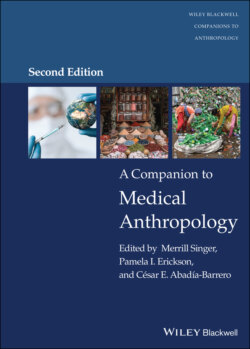Читать книгу A Companion to Medical Anthropology - Группа авторов - Страница 60
CHAPTER 4 Research Design and Methods in Medical Anthropology
ОглавлениеClarence C. Gravlee
Medical anthropology is the study of health and healing in cross-cultural and evolutionary perspective. This expansive definition matches the scope of the field: It is at once a humanistic and scientific enterprise that crosses both disciplinary and subdisciplinary boundaries and values both applied and basic research. Medical anthropology’s holistic and integrative approach to human experience enriches our understanding of sickness and health, but it also poses a challenge in attempting to delineate the range of research methods relevant to the field: Medical anthropologists draw on the whole toolkit of social science, and many researchers also integrate methods from the humanities, public health, biomedicine, and the life sciences.
In the wake of COVID-19, the challenge is even greater because disruptions to anthropological research – as to daily life – forced both methodological experimentation and epistemological reflection. Even before the pandemic, many researchers had turned to digital methods and the study of virtual worlds (Snodgrass 2015). Anthropologists had also contested the notion of “the field” as a bounded, unitary, or even physical place (Bonilla and Rosa 2015; Marcus 1995) and argued for participatory and decolonizing modes of research (Harrison 2010). COVID-19 intensified all these trends. We do not yet know what the long-term effects of this moment will be for anthropological research, but I imagine we will look back on it as a rupture.
Whatever changes are to come, however, will be shaped by established traditions of research. My goal in this chapter is to review the basic elements of research design and provide a framework for matching methods to questions across different research traditions. Medical anthropologists come from a wonderful array of paradigms – positivist, critical, constructivist, interpretive, evolutionary, ecological, and more. It’s true that certain methods are associated with certain traditions, but no one tradition can lay claim to any particular method (Pelto and Pelto 1996, p. 294). As Bernard (2018, p. 2) puts it, “Methods belong to all of us.” The COVID-19 crisis accentuated this point, as fluency in a broad range of methods proved essential for adapting to novel circumstances, developing successful collaborations, and designing research that matters.
